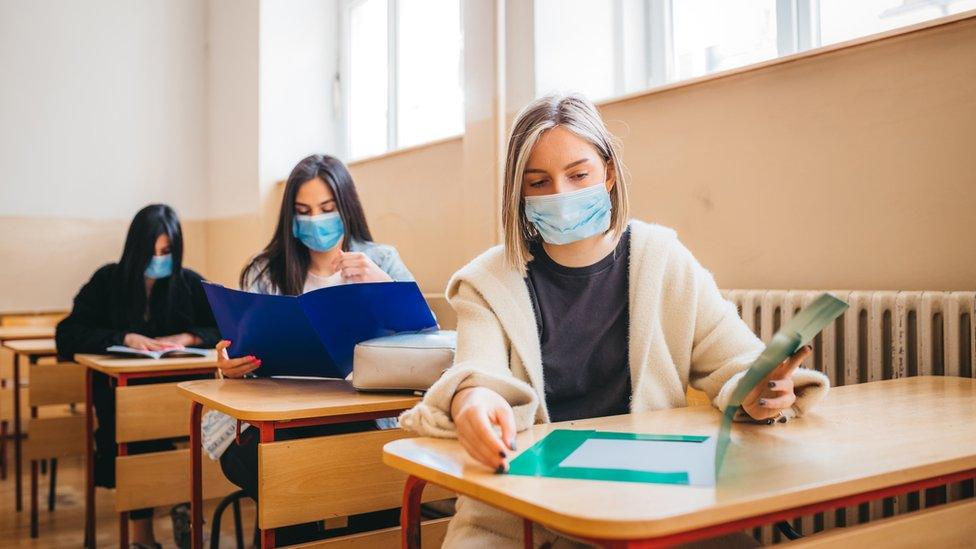NI education review: A year of changes and challenges
- Published
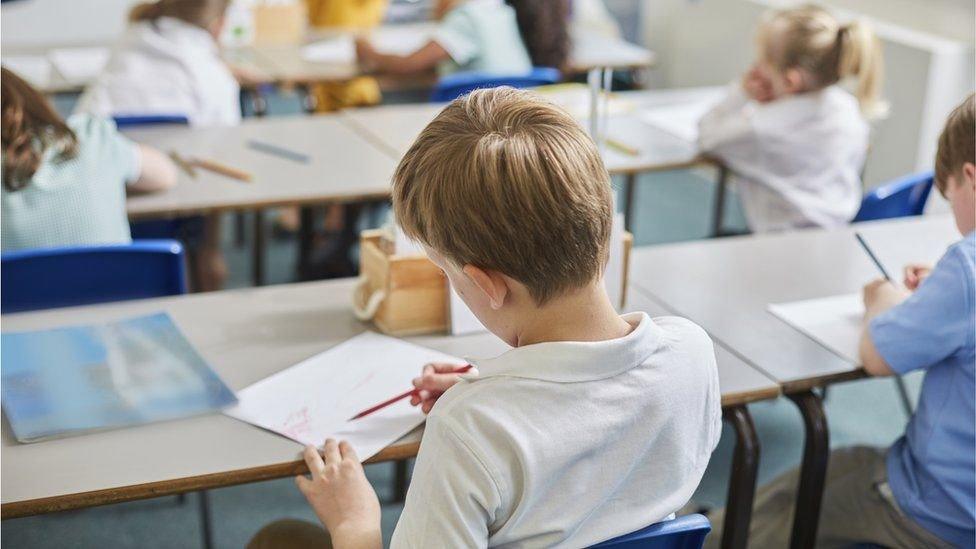
The Stormont Executive has said keeping schools open is a priority
For schools, colleges and universities, 2021 has been a case of - to use the famous saying attributed to Yogi Berra - "déjà vu all over again".
Covid-19 has meant another year of major changes in, and challenges for, education.
And 2021 ends on a similar note to 12 months ago, with some uncertainty over the start of the new term in January.
The executive though has said that keeping schools open is a priority.
A number of studies during 2021 - including from Northern Ireland's children's commissioner - have highlighted the severe impact being out of school can have on some children and young people.
Children with special educational needs and disabilities (SEND) and from lower-income backgrounds can be especially affected.
It should not really need to be stated by now but schools bring so many benefits to children and young people beyond the classroom.
They provide an opportunity for pupils to meet friends, play sport and keep active, and take part in a dazzling number of activities, clubs and societies run by hard-working school staff.
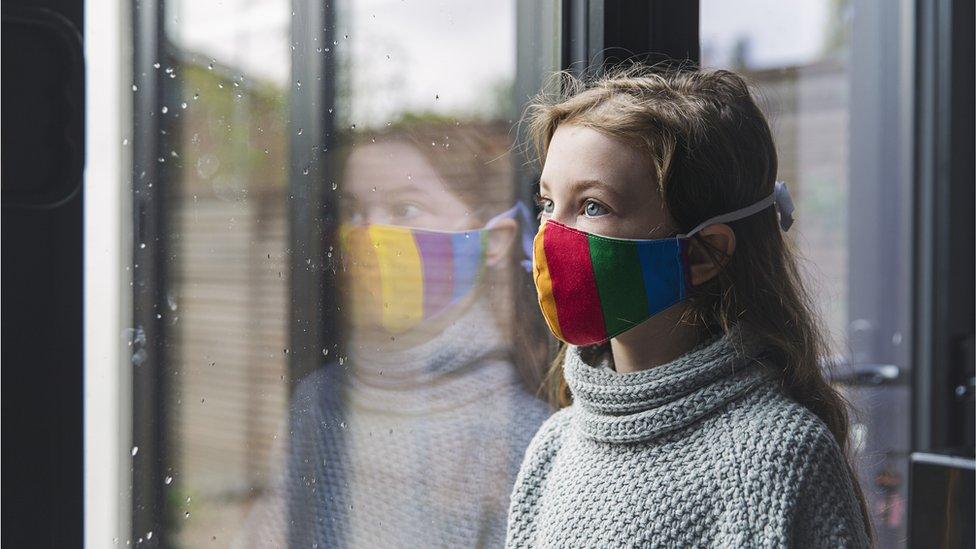
A number of studies during 2021 have highlighted the severe impact being out of school can have on some children and young people
Staff also provide what can be a crucial safety net for pupils facing serious problems, as well as vital support and life-enhancing therapies for those with additional needs.
That was one of the reasons why the executive decided that Northern Ireland's special schools should remain open for face-to-face teaching in January and February while the majority of other children were taught remotely again.
After much debate and changed arrangements, that led to cancellation of the transfer tests used by the vast majority of grammar schools to select pupils.
Those schools used alternative ways to admit pupils for September 2021, but the majority then went back to transfer tests again - which were held in November and December 2021 - to decide their 2022 intake.
In a major move, a common test is set to take the place of the separate AQE and PPTC tests in 2023, though plenty of people would still like to see academic selection scrapped altogether.
Smiles all round
I was at the rural Groggan Primary School in County Antrim to see the youngest pupils in P1 to P3 begin the phased return to class on 8 March after two months out of school.
It was smiles all round as children charged off the school bus or from their parents' cars to their classrooms to catch up with their friends, play and begin lessons again.
They were eventually followed back by all pupils in mid-April after the Easter break.
The then education minister, Peter Weir, had already decided, however, that summer GCSE, BTEC, AS and A-Level exams would be a casualty for a second year of the disruption to face-to-face teaching.
Teachers and schools were again asked to produce the awkwardly-titled Centre Assessed Grades or CAGs for their pupils, though they could use in-class tests to help them do that.
While there were concerns that meant "exams in all but name" for some pupils, there was no repeat in 2021 of the results fiasco which happened in summer 2020.
A new education minister was in place by the time pupils got their grades, with Michelle McIlveen replacing Mr Weir following a DUP reshuffle.
As 2021 ends, the plan is for GCSE, AS, A-Level, BTEC and other qualifications to again be assessed by exams in 2022, albeit with some parts of many courses omitted and perhaps more change coming.
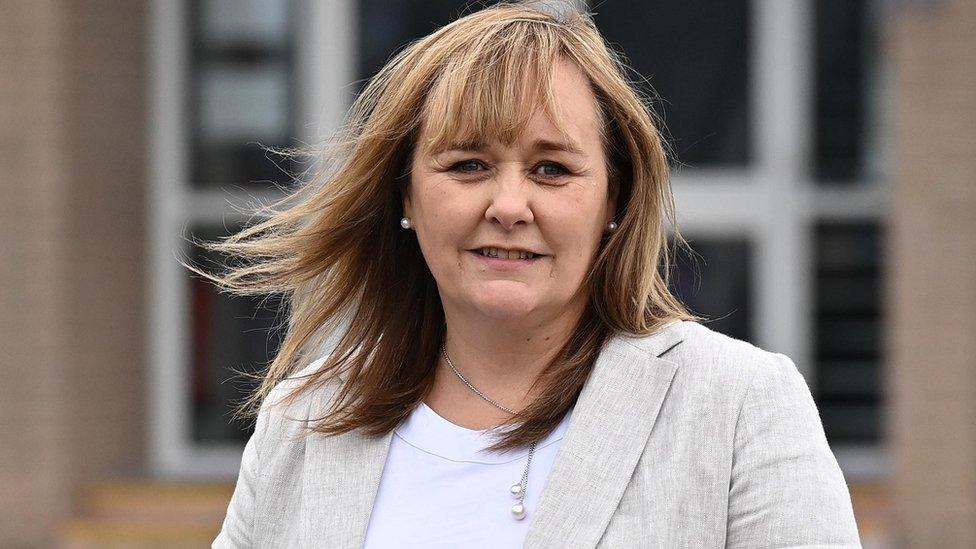
Michelle McIlveen replaced her DUP colleague Peter Weir as the education minister
Schools were able to open for all pupils at the end of August 2021 for the new school year.
There were immediate challenges for some with many pupils sent home because they were in close contact with someone with Covid-19.
That led to the Public Health Agency (PHA) taking over the task of contact tracing in schools, and using a more focused approach.
From then on, pupil attendance - though a couple of per cent lower on average than pre-pandemic levels - held up reasonably well.
But the Omicron variant has brought new problems, with some schools having to resort recently to remote learning for some year groups due to rising staff absences.
There is no sense that things will get easier in terms of staffing in January, which means that some children will again face some time learning from home.
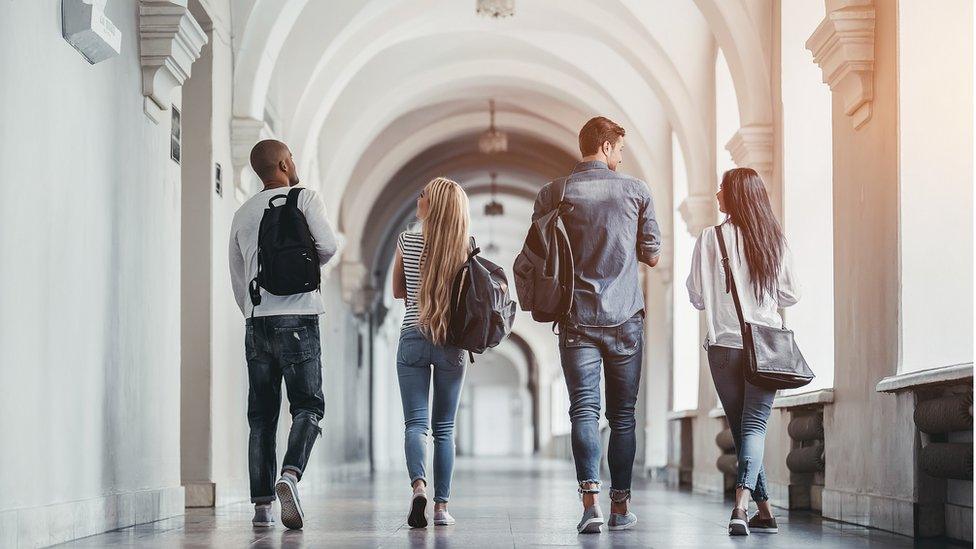
Higher education students received some financial support from the Stormont Executive through disruption payments
Meanwhile, university and further education (FE) staff and students also faced many challenges.
Most degree and other courses remained online during the first half of 2021, with face-to-face teaching only taking place where it was essential.
'Significant financial difficulty'
Higher education students received some financial support from the executive in disruption payments.
But some students still faced significant financial difficulty due to being tied into private rental contracts they could not get out of or because of the unavailability of part-time work due to wider restrictions - or both.
A study partly conducted by Ulster University (UU) found that rates of depression among students had risen during the pandemic, due partly to increased social isolation, feelings of helplessness and a lack of hope for the future.
Following a decision by the executive, students were able to return to face-to-face teaching on campus in September and the welcome routine of university learning and life resumed.
As the year ended, in-person graduation ceremonies were held at Queen's University for the first time in two years, while Ulster University is planning to hold ceremonies for students unable to graduate in person in 2020 and 2021 in the spring of 2022.
But the week before Christmas brought news of further disruption as Queen's told its students of a return to remote learning for January.
The start to the new year is likely to be rocky for schools, colleges and universities again but the hope is that 2022, as a whole, will see much less disruption than the past two years.
Related topics
- Published7 December 2021
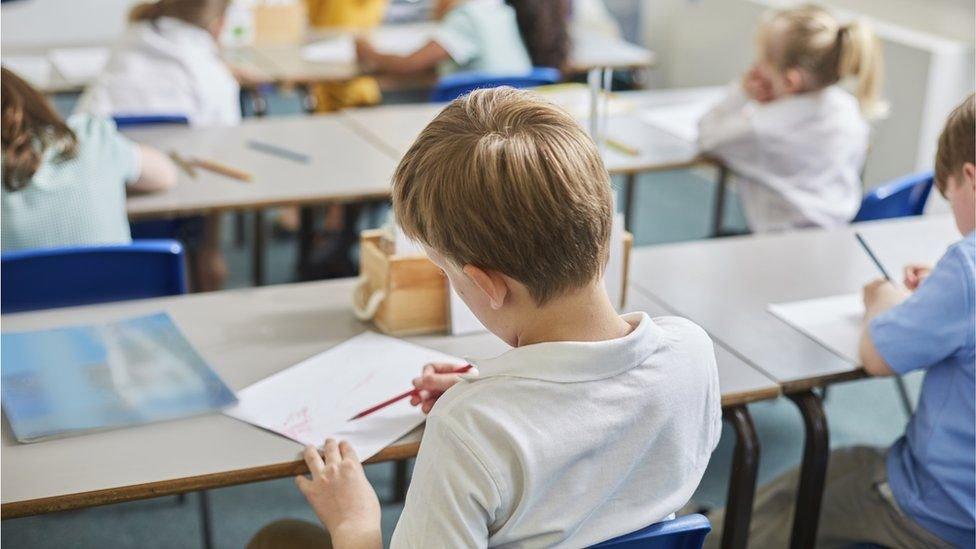
- Published30 November 2021
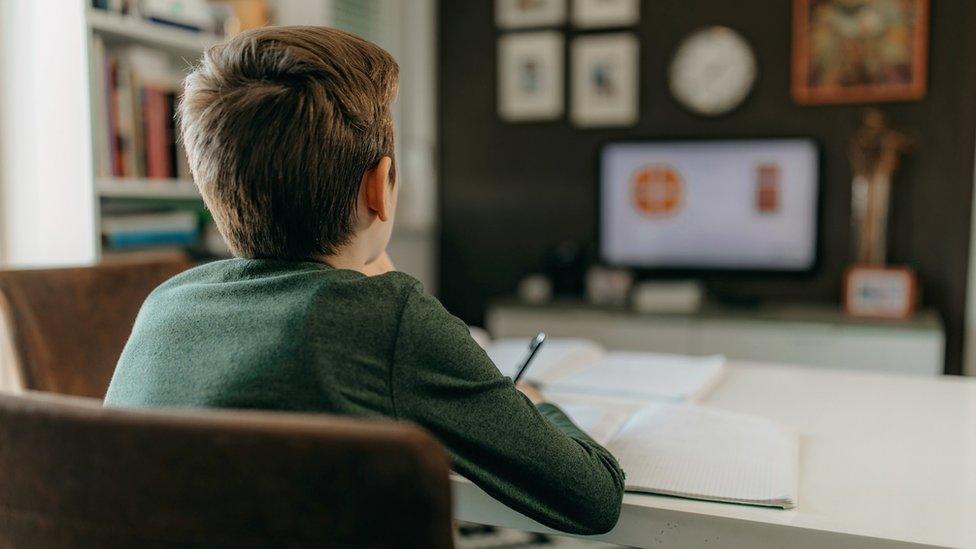
- Published6 January 2021
